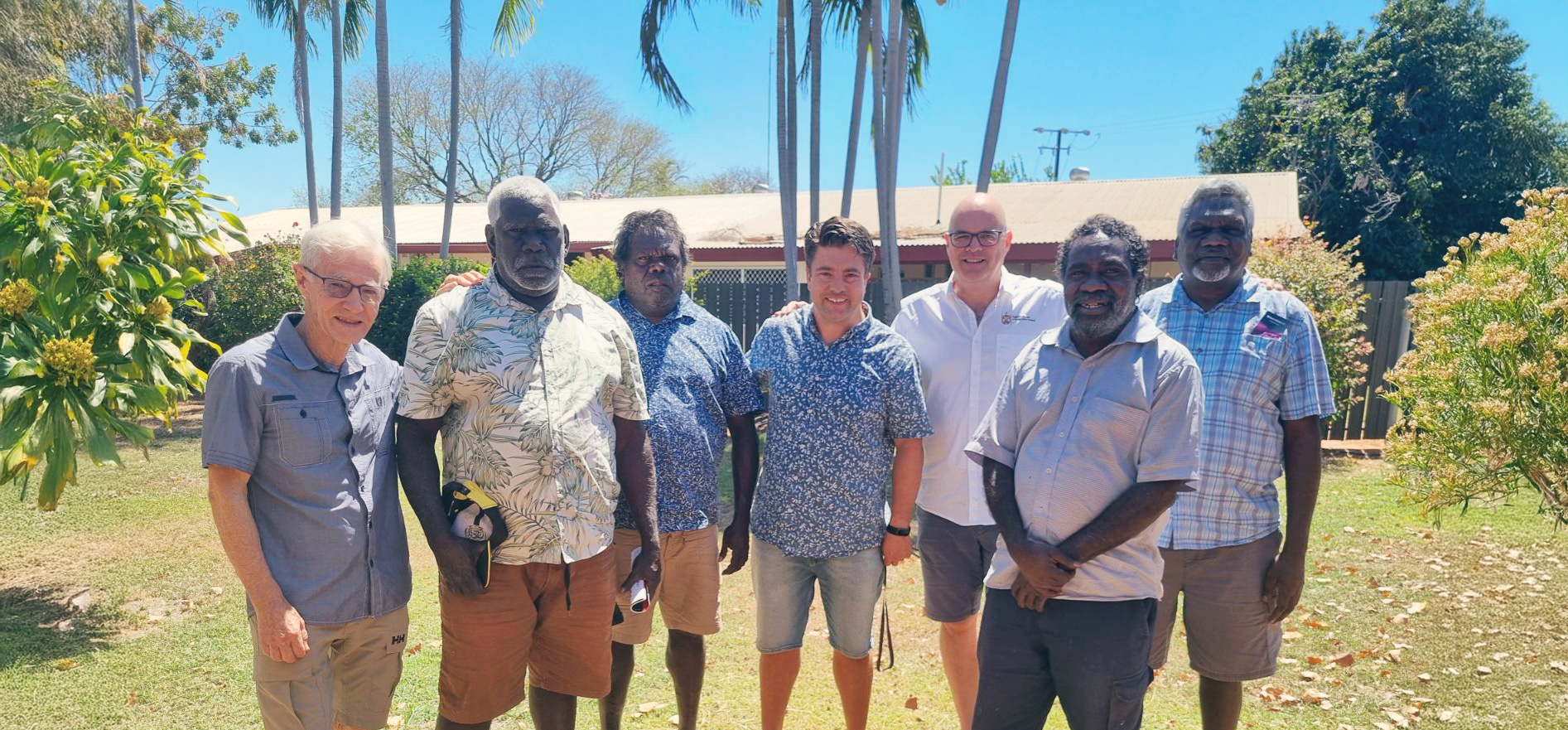Teaching theology in Indonesia
CMS missionary Andrew Buchanan explores the differences between Indonesian and Western culture, and how that shapes the way he teaches theology in a way his listeners can understand.
I remember as a young adult doing Introduction to the Bible as I started the Moore College Preliminary Theological Certificate.
At the time, I was familiar with and had responded to the existential edge of the gospel, that Jesus offered me eternal life having died for my sins on the cross and having risen from the dead. That was a transforming message for me in my shame and guilt as a dysfunctional teenager.
But in that Introduction to the Bible course, I learned how Jesus’ ministry and work made sense within a larger story. This story was worked out in human history through promises to one people group, Israel, but is in fact the story of God creating and redeeming the whole of humanity and creation. This helped me understand the Bible much better, widening my vision beyond my desire to become a ‘better person’ to embracing the world-wide scope of God’s mission in the world.
A strong vision for God
Having a strong vision of God and his work in Jesus Christ and through the Holy Spirit, is foundational to (even if not sufficient for) a healthy church. Promoting this vision has always been a major part of my motivation in theological education. Many in the Indonesian church would also agree on the centrality of biblical studies and doctrine for developing this vision. However, it is very challenging for locals to develop the technical skills needed to interpret biblical languages or to mine insights from significant theologians of the past. I came to a college that had no-one with training in New Testament. I was drafted into teaching doctrine subjects in my last two years there when the only local to gain post-graduate qualifications in that field in the last thirty years became ill. Most ministers who have master’s degrees choose pastoral theology or social studies which have adequate Indonesian language resources and connect with their direct experience.
The problem of being reluctant to deal with theology
However, there is more going on than just the academic difficulty of these subjects. A reluctance to deal with theology can be seen in much preaching. I remember two sermons a few years ago that, inspired (somewhat woodenly) by Langham preaching training, went verse by verse through their respective passages from the prophets, speaking clearly about what God was calling us to do. However, on getting to the verses talking about God, they skipped over them entirely, conveying none of what those verses revealed about God and his ways. This displayed clearly what I have observed in many other sermons. No wonder, then, that the theological vision of many church members is virtually indistinguishable from the general religious atmosphere of Indonesia, where being religious is about gaining supernatural blessing and/or showing oneself an upright member of society.
My initial explanation of these observations was to see them as the result of a kind of reductionist theology (which can indeed be found in some theological academic circles in Indonesia) which sees talk about God as being really about human faith and ethics. However, most ministers sincerely subscribe to the church’s confession of faith which is orthodox and Christ-centred. Rather, I am told that what congregation members want is teaching that is ‘practical’ and ‘relevant’. Since knowledge of God is highly practical and relevant, it appears to me that what is happening is that most preachers have not learnt how to talk in any depth about God in ways that make sense (cognitively and practically) in their congregations.
Indonesian theology needs to be done differently
My working hypothesis is that much theology in Indonesia, conservative or liberal, faces the West. Textbooks and curricula are written by foreigners or Indonesians who have studied overseas whose implicit audience are their Western teachers. These resources are very much shaped by questions that have been important to Europeans. Most obvious are liberal/conservative controversies such as the relation of the Bible and history, which appear to have been imported whole. More subtle is the Western emphasis on the individual soul before God, and the (educated) delight in logical consistency and coherence. This works well enough for an increasing number of well-educated, modern Indonesians, who tend also to be the thought leaders in their Christian communities. But it does not connect easily with most people in my area (whether students or congregation members) who understand via story and metaphor and whose sense of identity is more collective.
This analysis has shaped my lecturing in the last few years, including my Doctrine lectures. To structure my teaching, I chose three major metaphors of the church—family, kingdom, congregation—that describe who we are in relation to God (Father, King, Creator) and with implications for how we live (including maturity, mission, and blessing). These are biblically given concrete metaphors which are richly developed through the biblical story (this received more emphasis in my biblical studies subjects) but can also incorporate many of the major topics that have exercised Christian thinkers during the centuries. This framework does seem to enable the students to begin thinking theologically, that is, to look at life and ministry in the light not just of the Bible’s ethical commands but also in the light of who God is.
An example of the difference
As a simple (and simplified) example, I would ask them why people go to church, for blessing or for maturity? They liked this question because the answer is obvious: blessing. This reflects that local Christians do have a strong sense of dependence on God for their daily needs, but much less sense of God’s fatherly love that wants them to grow to become a family like Christ. A quite practical observation about church life turns out to have theological roots. Understanding this guides how the Bible’s rich picture of God is preached in a way that builds up what is weak and reinforces what is strong.
Developing this framework into lecture courses has required all the exegetical and theological skills that my training in Australia provided, aided by the missiological and social science investigations of my doctoral studies. Will this framework help them talk more richly about God in their teaching and pastoral ministry? That will depend on a lot more than my lectures. What needs to develop is biblically grounded language about God that becomes how the local community talks about God. Like language development, this is an organic process that can only be encouraged, not directed.
Conclusion: Develop local ways of talking about God
Clear theology is also not without its costs. Effectively preaching God in Christ as the basis for our identity is far more likely to offend local idolatries in a collective culture than sermons encouraging people to be nice to each other or to be pious. Nevertheless, many people have a thirst for clearer biblical teaching, as reflected in the popularity of the many good teaching and training programs the denomination has been promoting (such as Langham preaching and Evangelism Explosion). However, as my example above suggests, these will not have lasting effects unless the church develops local ways of talking about God.
Give
There are many gospel-poor communities that don’t have the resources to train local believers. Can you contribute to the building up of the local church overseas? Find out more at cms.org.au/give












































































































